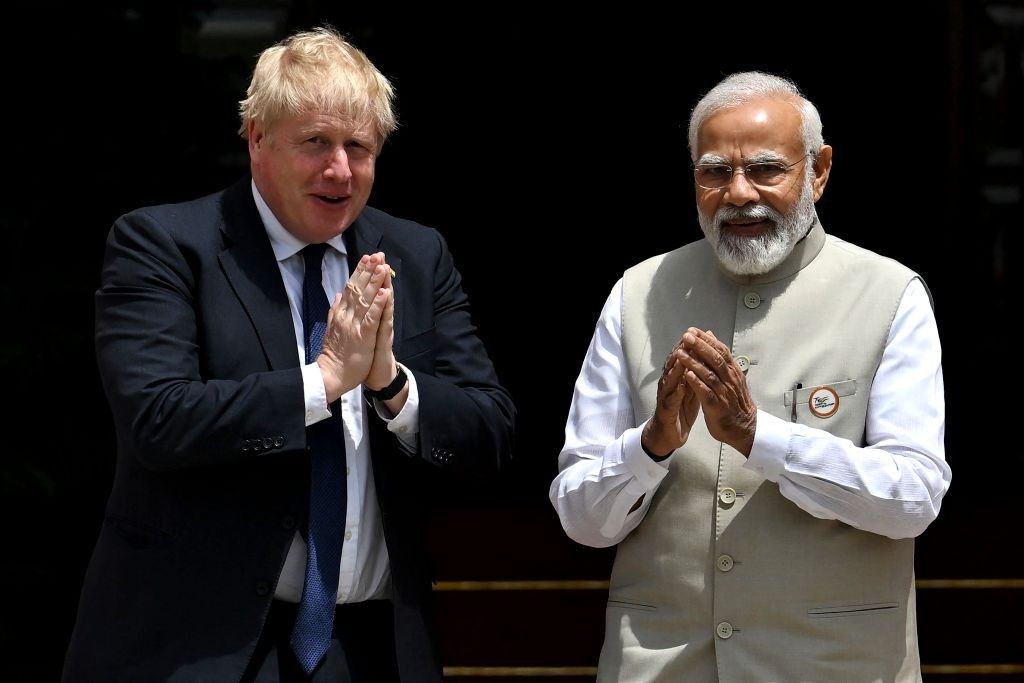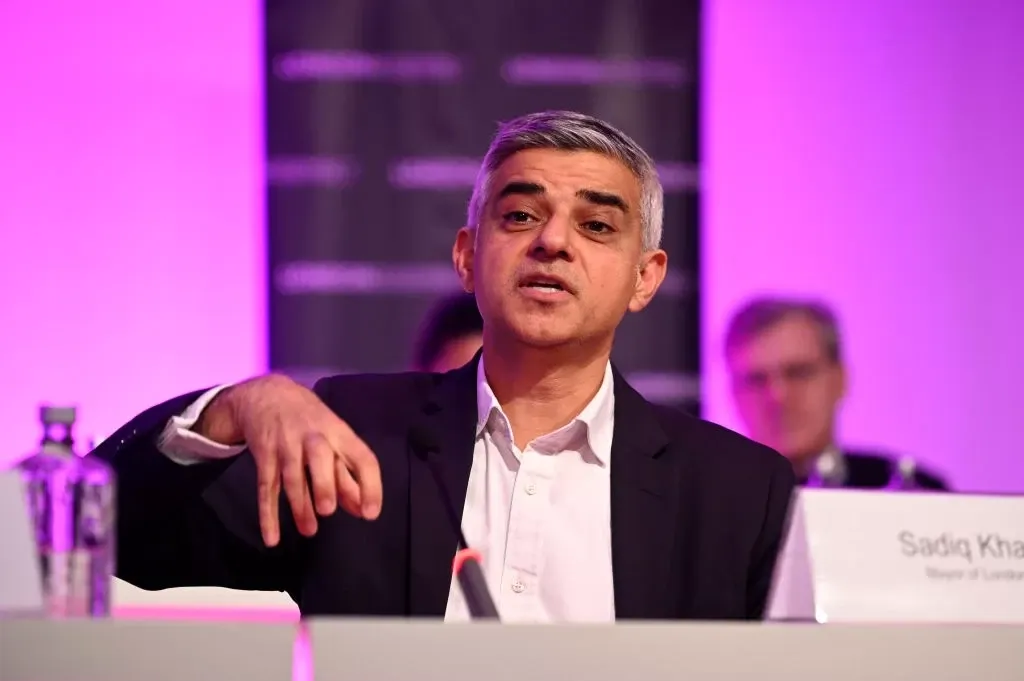British prime minister Boris Johnson said on Friday that skilled workers from India could plug labour shortages in sectors such as information technology in the UK, even as he reiterated that immigration would continue to be controlled.
Britain has made getting a trade deal with India one of its post-Brexit priorities as ministers, free from the European Union’s common trade policy, look to gear policy towards faster-growing economies around the Indo-Pacific region.
A trade deal could almost double British exports to India, and by 2035 boost total trade by £28 billion ($38 billion) per year. Total trade in 2019 was worth £23 billion, according to British statistics.
India wants greater opportunities for Indians to live and work in Britain. Any trade deal will likely be contingent on relaxing rules and lowering of fees for Indian students and professionals going to the country.
“If you look, for instance, at IT or computer programming, there are areas where there’s no question that Indian skills can make a difference,” Johnson told reporters in the Indian capital of New Delhi during his two-day visit to the world’s largest democracy.
“I’m going to prioritise skilling up the British people to do those jobs, but I’m not going to be dogmatic in refusing to allow people with skill and talent to aspire to come to the UK.”
During his trip, Johnson met with India prime minister Narendra Modi and announced Britain and India agreed a “new and expanded” defence and security partnership.

The new partnership was “a decades-long commitment”, he added, hailing the relationship between “one of the oldest democracies, and India, certainly the largest democracy”.
Johnson began his maiden India visit as prime minister on Thursday in Modi’s home state Gujarat, where he announced new investments worth £1 billion ($1.3 billion) that he said will help create 11,000 jobs across the UK.
Johnson said the two countries were on the path to finalise a post-Brexit free trade deal by October that has been held up by New Delhi’s desire to secure more visas for Indians to work or study in Britain.
“We are making full use of the freedom that we now have to reach a Free Trade Agreement, a deal where you can lift those tariffs,” he said.
London Mayor Sadiq Khan urged Johnson to keep his Brexit promise to make migration easier for workers from countries outside the EU.
“During the Brexit referendum campaign, Tory politicians claimed our departure from the European Union would enable Britain to cut red tape on migration from countries outside the EU, including India,” said Khan.
“For those of us who voted to remain and had repeatedly called for the relaxation of visa rules for migrant workers and overseas students from around the world, the promise of a more welcoming approach offered a rare light at the end of the Brexit tunnel.”

He added: “As we recover from a devastating pandemic, London is crying out for the expertise of trained coders and curry chefs. With the prime minister now in India, the time is ripe for him to lay out the details of just how many visas will be issued and the conditions applicants will have to meet.
“A stream of mixed messages has been trickling out from Number 10, and diaspora communities across London and skilled workers across the world are now desperate for clarity. We refuse to accept any more of the PM’s bluff and bluster.”
Speaking on the plane on his way to India, Johnson signalled he was ready to be more accommodating on an issue that could have stalled the talks.
“I have always been in favour of talented people coming to this country,” Johnson told reporters. “We are short to the tune of hundreds of thousands of people in our economy and we need to have a progressive approach and we will.”
India and former colonial power Britain already share strong trade ties, and more than a million people of Indian origin live in Britain after decades of migration.
Britain wants to tap into the wealth of India’s middle classes and their appetite for premium British products such as Scotch whisky.
They also hope that India can become a customer of its green technology and that service trade can also be strengthened.
